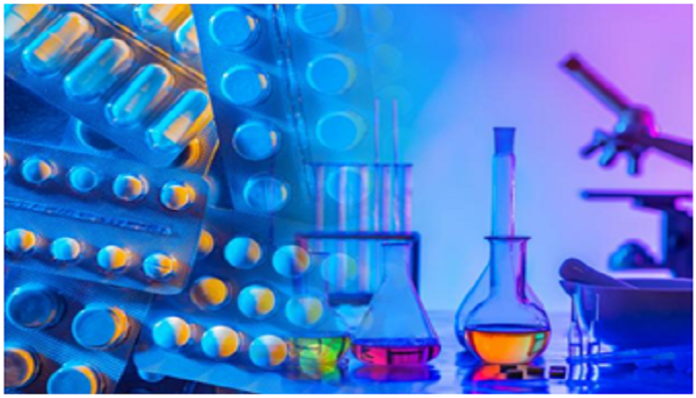Abstract
Moisture in the pharma products manufacturing process from raw materials to the final products, storage and delivery, can create product quality deterioration. Hence dehumidification during the entire chain of process is very important. This article briefly states where all in the process it is important. And that MSMEs can benefit from outsourced rental dehumidification structure.
Introduction
The pharmaceutical industry holds a crucial position in healthcare as it is essential for healthcare. The quality of the pharmaceutical product is equally important to determine the recovery of the patient. Therefore, it is one of the most strictly regulated industries across the world that requires it to conform to the Food and Drug Administration (FDA) specifications, to maintain the product quality as per the industry standards.
While complying with the specifications, manufacturers must be vigilant enough to look for potential threats to the manufacturing process. Moisture is one of the significant threats to the process because various pharmaceutical products are highly hygroscopic, and readily absorb moisture from the surrounding air. This necessitates the employment of a dehumidification system to curb the influence of moisture on the products. It is required for various processes entailing dry powder/ vial filing, tablet coating, packaging of drugs and tablets, storage of hygroscopic materials, compression of powder into tablets, sugar coating, and storage of finished products.
Understanding the repercussions in detail can help the industry make proper decision for timely installation of an effective dehumidification system.
Powder Milling: Atmospheric moisture offers great resistance to grinding and pulverizing operations. Moisture makes the material resilient, making it difficult to grind. Many times, materials cling to the grinding machine and offer great resistance to conveying of material further for pneumatic processes.
Compounding of Tablets: While compounding the tablets, unwanted moisture impedes the desired reaction from taking place which ends up in the formation of an undesirable end product. Consequently, many other compounds are moisture reactive which highly compromises the quality of the product and shortens the shelf life as well.
 Tablet Compression: The powdered materials undergo lumping and caking by absorbing moisture. It requires a perfectly dry state to be compressed into a tablet. Humidity not just causes the failure of the tableting process but in certain cases initiates the decomposition of drugs that reduces their medicinal value.
Tablet Compression: The powdered materials undergo lumping and caking by absorbing moisture. It requires a perfectly dry state to be compressed into a tablet. Humidity not just causes the failure of the tableting process but in certain cases initiates the decomposition of drugs that reduces their medicinal value.
Soft Gelatin Capsule: In soft gelatin manufacturing, the main essence lies in congealing the gelatin, which is only possible in the ideal set of environmental conditions. Excessive high temperature and humidity intervene solidification of capsules by initiating softening in the gelatin. Therefore, it is necessary to eliminate moisture continuously to prevent superficial surface hardening.
Even during encapsulation and packing, the level of humidity should be within the range of 30±5% at 23°C. The drying of soft gel capsules is very tricky and requires very controlled temperature and humidity conditions that should not exceed 20 during the drying process. Failing to comply with any of the conditions ends up in making the capsule either brittle or extra soft.
Storage & Packaging: Considering that pharmaceutical materials are highly susceptible to undergo reaction in the presence of moisture, maintaining low humidity is essential even during storage & packaging. Irrespective of the type of storage, be it in the powdered form, capsule, or aluminum foil storage, in uncontrolled humidity, the materials tend to regain moisture, ruining the entire precautions and efforts taken to manufacture the products.
 Likewise, during packaging, if conveying of powdered substances to packaging areas is done in high humidity, it causes sticking and clustering of the powder to the conveyor. Hence, dehumidification is very much needed to protect the integrity of the product through the last mile and ensure the quality of products till the expiry of the shelf life.
Likewise, during packaging, if conveying of powdered substances to packaging areas is done in high humidity, it causes sticking and clustering of the powder to the conveyor. Hence, dehumidification is very much needed to protect the integrity of the product through the last mile and ensure the quality of products till the expiry of the shelf life.
It is evident that failing to install dehumidification solutions can lead to problems like deterioration of hygroscopic material; organic corrosion; biochemical reactions; growth of micro-organisms; decomposition due to unwanted chemical reactions. All the factors together lead to shorter shelf-life of the products. It can severely contribute to the rejection of the products for not meeting the industry standards.
Hence, a dehumidification solution is a prerequisite throughout the processing, manufacturing, storage, research, and testing of the pharmaceutical product. Ideally, the system must be installed in the manufacturing unit but there are many companies that outsource the manufacturing, for which opting for a rented dehumidification solution can come in handy for solving problem.
Editors note:
Certain companies like TDS provide the best-in-class dehumidifiers on rent to achieve precise climate control during the drying, processing, storage, and packaging of pharmaceutical materials.

































